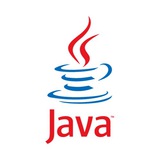tg-me.com/topJavaQuizQuestions/453
Last Update:
Understanding Java Streams in Depth
Hey folks! 👋 Today, I want to dive into Java Streams—an essential component of Java's functional programming paradigm. Streams enable you to process sequences of elements in a functional style, making your code cleaner and easier to read. Here are some highlights:
What is a Stream?
It represents a sequence of elements supporting sequential and parallel aggregate operations.
Key operations:
- Intermediate operations (e.g., filter, map): Return a new Stream and are lazy.
- Terminal operations (e.g., forEach, collect): Produce a non-stream result and trigger the processing of the pipeline.
Example of using Streams:
```java
List<String> names = Arrays.asList("Alice", "Bob", "Charlie");
List<String> filtered = names.stream()
.filter(name -> name.startsWith("A"))
.collect(Collectors.toList());
```
Advantages of Streams:
- Concise syntax: Less boilerplate code.
- Declarative style: Focus on what to do rather than how.
Remember, using Streams can significantly improve your code's clarity and efficiency. Happy coding! 🚀
BY Top Java Quiz Questions ☕️
Warning: Undefined variable $i in /var/www/tg-me/post.php on line 283
Share with your friend now:
tg-me.com/topJavaQuizQuestions/453
